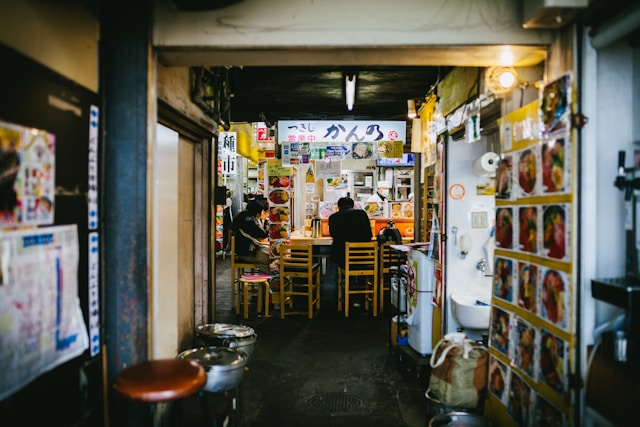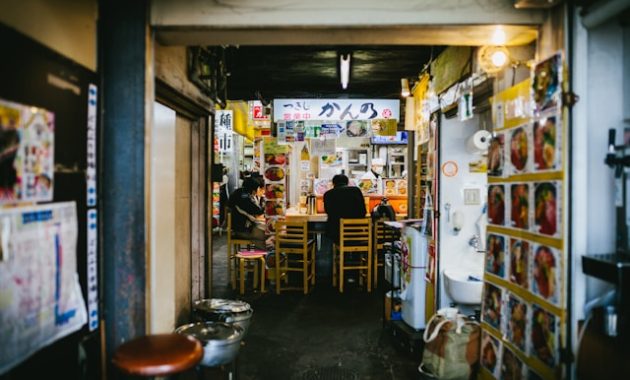
Tokyo, Japan’s bustling capital, seamlessly blends futuristic innovation with ancient traditions. While the city is known for its neon-lit skyscrapers, efficient public transport, and cutting-edge technology, it is also a treasure trove of unique customs that provide a glimpse into the soul of Japanese culture. From time-honored festivals to everyday rituals, Tokyo’s traditions offer an unforgettable cultural experience.
1. Matsuri: The Heartbeat of Tokyo’s Culture
Matsuri, or traditional festivals, are an integral part of Tokyo’s cultural identity. These events, deeply rooted in Shinto and Buddhist beliefs, are celebrated with fervor throughout the year.
Kanda Matsuri
Held in May, the Kanda Matsuri is one of Tokyo’s most prominent festivals. Thousands gather to witness the procession of mikoshi (portable shrines), which are carried through the streets to bless the city and its residents with prosperity.
Sanja Matsuri
Celebrated in May at Asakusa’s Senso-ji Temple, this festival honors the three founders of the temple. The vibrant parade features traditional costumes, taiko drumming, and over 100 mikoshi, symbolizing community spirit and devotion.
2. Traditional Tea Ceremony: An Art of Mindfulness
The Japanese tea ceremony, or sado, is a deeply spiritual practice emphasizing harmony, respect, purity, and tranquility. In Tokyo, visitors can participate in this ritual at tea houses like those in Hamarikyu Gardens or the Happo-en Garden.
The ceremony involves meticulous preparation and presentation of matcha (powdered green tea) and showcases Japan’s aesthetic values and hospitality.
3. Kabuki Theatre: A Window to Edo-Era Entertainment
Kabuki, a traditional form of Japanese drama, originated during the Edo period and remains popular today. Tokyo’s Kabuki-za Theatre in Ginza offers an authentic experience, with performances that blend elaborate costumes, dramatic makeup, and stylized acting.
Pro Tip for Visitors:
Opt for single-act tickets if you’re short on time but want a taste of this captivating art form.
4. Omotenashi: The Spirit of Hospitality
Tokyo’s unique approach to hospitality, known as omotenashi, is more than just politeness—it’s a deep-seated philosophy of anticipating and meeting guests’ needs.
This ethos is evident in Tokyo’s ryokans (traditional inns), where guests are treated to impeccable service, kaiseki meals, and tatami mat rooms.
5. Hanami: Cherry Blossom Viewing
Each spring, Tokyo transforms into a pink-hued wonderland during the cherry blossom season. Hanami, or flower viewing, is a cherished custom where locals and visitors alike gather in parks like Ueno and Yoyogi to picnic under sakura trees.
This tradition is not merely about admiring the blossoms; it’s a celebration of life’s fleeting beauty, as symbolized by the ephemeral nature of the flowers.
6. Tsukiji Outer Market: Culinary Heritage

While the inner wholesale market has moved to Toyosu, the Tsukiji Outer Market continues to thrive, offering a glimpse into Tokyo’s culinary traditions.
What to Try:
- Sushi and sashimi prepared from freshly caught fish.
- Tamago-yaki (sweet Japanese omelette).
- Street snacks like grilled scallops and sea urchin.
7. Shinto Shrines and Buddhist Temples: Sacred Spaces in a Modern City
Tokyo is home to countless shrines and temples that offer serene escapes from the city’s hustle and bustle.
Meiji Shrine
Nestled in a forested area near Harajuku, Meiji Shrine is dedicated to Emperor Meiji and Empress Shoken. The rituals, like writing wishes on ema (wooden plaques), connect visitors with Japan’s spiritual traditions.
Senso-ji Temple
Located in Asakusa, Senso-ji is Tokyo’s oldest temple. Its iconic Kaminarimon Gate and bustling Nakamise shopping street reflect the city’s rich history.
8. Unique Etiquette: Respect in Everyday Life
Tokyoites adhere to a code of etiquette that might seem intricate to outsiders but reflects their respect-driven culture.
Key Practices to Note:
- Bow as a greeting: The depth of the bow conveys the level of respect.
- Quiet public behavior: Loud conversations in trains and buses are frowned upon.
- Tipping is unnecessary: Service charges are typically included in bills.
9. Seasonal Celebrations: Tokyo’s Year-Round Festivities
Tokyo’s traditions change with the seasons, offering visitors something new each time.
- New Year (Shogatsu): Visiting shrines for hatsumode (first prayers of the year).
- Tanabata Festival (July): Writing wishes on colorful strips of paper and tying them to bamboo trees.
- Obon (August): Honoring ancestors through dances and lanterns.
Final Thoughts
Tokyo’s unique traditions provide a fascinating blend of old and new, offering visitors a profound connection to Japan’s rich cultural heritage. Whether it’s participating in a tea ceremony, marveling at a kabuki play, or simply enjoying the cherry blossoms, these customs leave an indelible mark on anyone who experiences them.